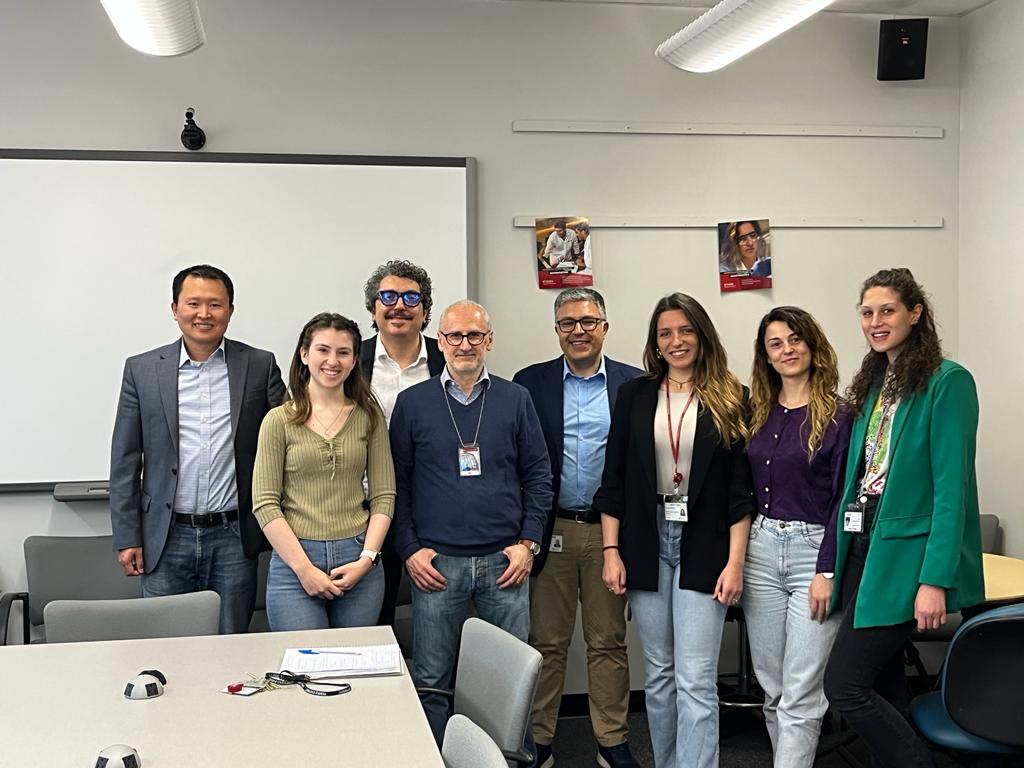“From biologic mechanisms to theragnostic paths in the Hereditary Cancer Syndromes: germline mutations as a therapeutic target” is the title of the meeting held at the Temple University, Friday, May 12.
Although hereditary cancer syndromes include a small minority of all malignancies, our understanding of the biological basis of inherited cancers has evolved significantly over decades. The deeper knowledge of germline defects and related biological and clinical consequences helped to develop effective drugs for these neoplastic syndromes. International collaboration and engagement lead to breakthroughs in hereditary cancer syndrome understanding, that might be expanded to other sporadic tumors with similar biology. During this hybrid conference, it was summarize the genetic background of the main hereditary cancer syndromes that led to novel theragnostic strategies and drug development in recent years.
On behalf of the CoEHAR center, prof. Massimo Caruso, University of Catania attended the meeting with an lecture on “A theragnostic application of biomarkers in immunotherapy for pollen allergy“. With him, the prof. Ang Sun, researcher of the Replica project of CoEHAR.
More than hundred students attended the conference in Philadelphia.
Speakers also present: Prof. ssa Viviana Bazan, University of Palermo, Italy; Prof. Antonio Giordano – Temple University, Philadelphia; Lorena Incorvaia, Ph.D. (University of Palermo, Italy); Demet Sag, Ph.D., Functional Transgenomics, Newtown, Massachusetts, the U.S.A.; Giuseppe Badalamenti, Ph.D. University of Palermo, Italy; David Orchid-Webb, Ph.D. (University of Leeds, U.K.; Steve Williams, Ph.D. Temple University, the U.S.A.; Wen-Ming Chu, Ph.D. University of Hawaii, Sbarro Health Research Organization; Gianfranco Bellipanni, Ph.D. Temple University, the U.S.A.; Elisa Ventura, Ph.D. Temple University, the U.S.A.; Andrea Morrione, Ph.D. Temple University, the U.S.A..




